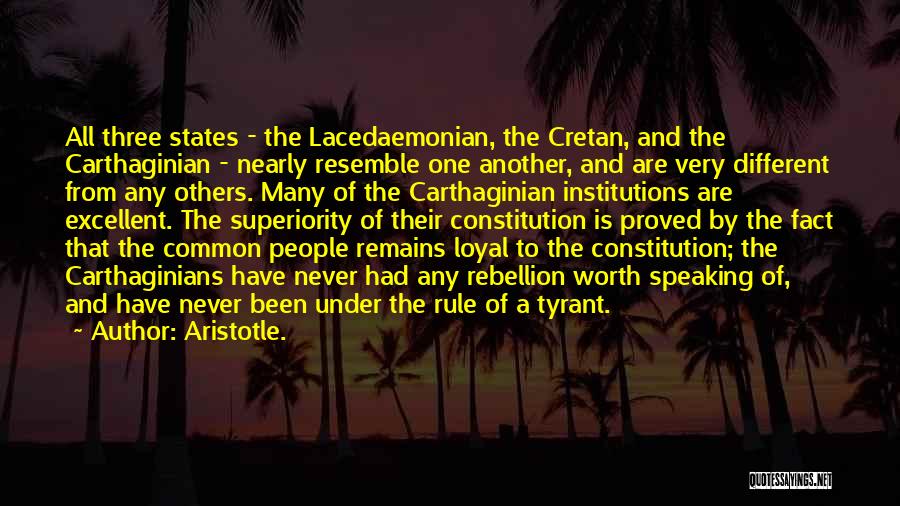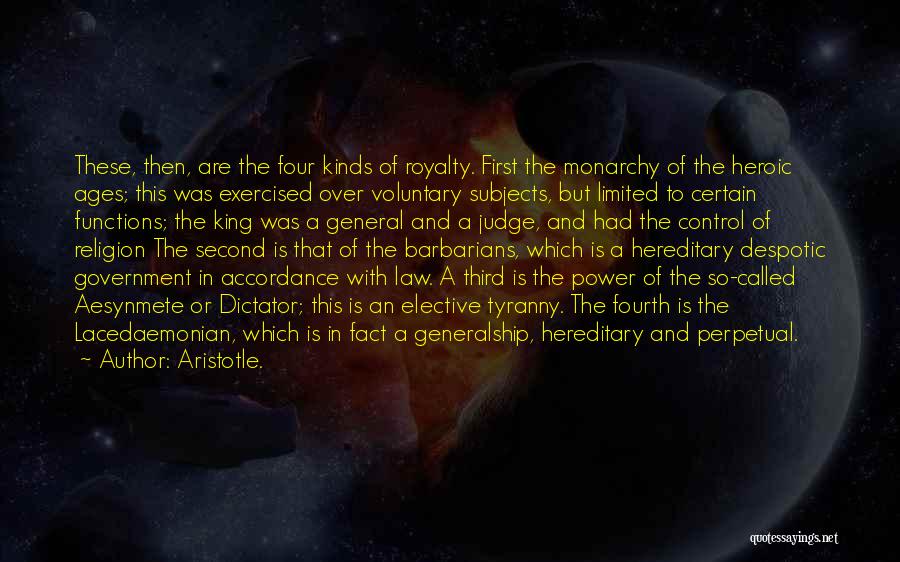Lacedaemonian Quotes & Sayings
Enjoy reading and share 5 famous quotes about Lacedaemonian with everyone.
Top Lacedaemonian Quotes

If we were bees, ants, or Lacedaemonian| warriors, to whom personal fear does not exist and cowardice is the most shameful thing in the world, warring would go on forever. But luckily we are only men - and cowards. — Erwin Schrodinger

Lycurgus the Lacedaemonian brought long hair into fashion among his countrymen, saying that it rendered those that were handsome more beautiful, and those that were deformed more terrible. To one that advised him to set up a democracy in Sparta, "Pray," said Lycurgus, "do you first set up a democracy in your own house. — Plutarch

All three states - the Lacedaemonian, the Cretan, and the Carthaginian - nearly resemble one another, and are very different from any others. Many of the Carthaginian institutions are excellent. The superiority of their constitution is proved by the fact that the common people remains loyal to the constitution; the Carthaginians have never had any rebellion worth speaking of, and have never been under the rule of a tyrant. — Aristotle.

A traveller at Sparta, standing long upon one leg, said to a Lacedaemonian, "I do not believe you can do as much." "True," said he, "but every goose can." — Plutarch

These, then, are the four kinds of royalty. First the monarchy of the heroic ages; this was exercised over voluntary subjects, but limited to certain functions; the king was a general and a judge, and had the control of religion The second is that of the barbarians, which is a hereditary despotic government in accordance with law. A third is the power of the so-called Aesynmete or Dictator; this is an elective tyranny. The fourth is the Lacedaemonian, which is in fact a generalship, hereditary and perpetual. — Aristotle.





